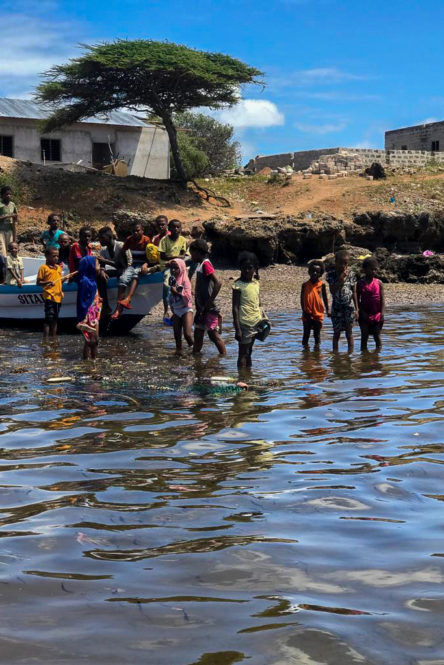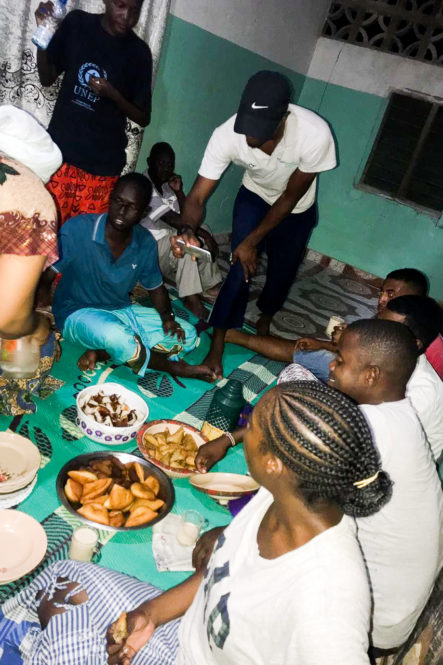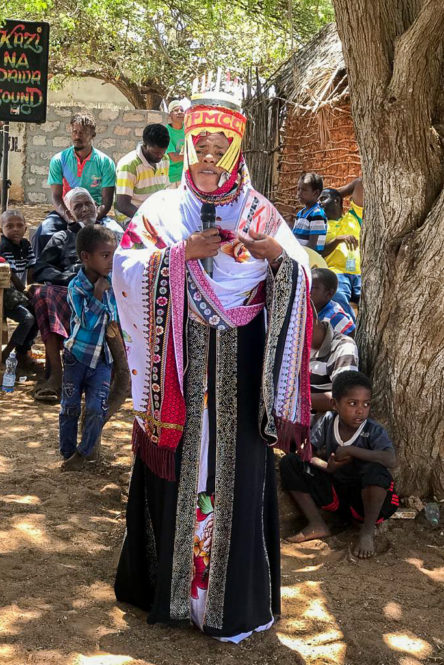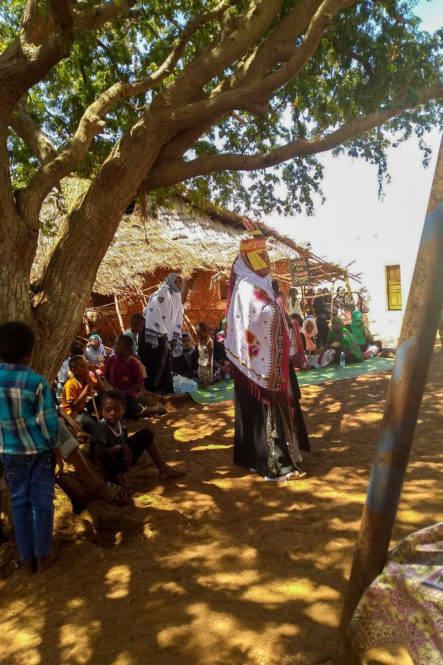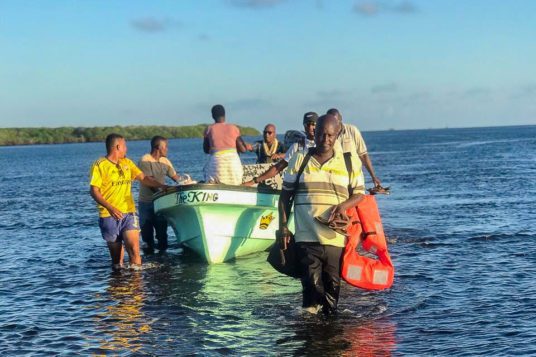
Wading through the shallows at low tide onto Pate island | Photo: Agatha Ogoda
As our boat approaches the shore, the swimming children run out of the water to the beach with excitement, curious to see the new faces coming to their village and happy to see the familiar faces from Northern Rangelands Trust and The Nature Conservancy. ‘Jambo! Shikamoo!’ the children chorus greetings to us, and they giggle and laugh at our unfamiliar accents as we reply. The sea is amazingly calm in contrast to the electric atmosphere in the nearby village, which buzzes with voices and music.
We take a few paces up the small coral cliff into Shanga Ishakani village, Pate Island, Kenya, where happy groups of women on our left and men on our right welcome us, showing us where to go. The women help me and the other female visitors with our bags and show us to one of their houses for a reviving drink of water before heading to the meeting ground.
It’s all in honour of the local women’s association and other community members who have successfully run Kenya’s first octopus fishery closureI can see the village has made a huge effort for today’s celebration, and it’s all in honour of the local women’s association and other community members who have successfully run Kenya’s first octopus fishery closure. They were initially inspired to form their association and organise a closure following their visit to Andavadoaka in southwest Madagascar, as part of a fisheries learning exchange supported by Blue Ventures.
The first two closures have shown encouraging results, with fishers reporting increased octopus catch upon reopening. Their successes have also led to new opportunities for the women of Pate Island: for the first time, women have been elected into the leadership of the local Beach Management Unit (a BMU is an organisation legally mandated by the Kenyan and Tanzanian governments to oversee community-led management of fisheries). These women now have a voice to contribute to decision making around community development and the conservation agenda.
In the village, the atmosphere is jubilant and festive; the much-loved bongo music fills the air, men are dressed in their fine kanzus and the women in their deras and buibui, the children are running around with their homemade toy cars, while others show off their dance skills in little groups. Women are busy cleaning rice, preparing the three-stone cooking stoves, and pounding garlic, cloves and an array of swahili spices with a mortar and pestle. They’ve even hired a master of ceremonies; this will be one big party!
On the master of ceremony’s request, people start to gather at the meeting ground to begin the formalities. Along with the Shanga Ishakani community, in attendance is the county fisheries director, the fisheries officer for Pate Island, village elders from other villages within Pate Island, members of the Northern Rangeland Trust (NRT) team, Pate Marine Community Conservancy (PMCC), research scientists from Kenya Marine and Fisheries Research Institute, and a representative from Kenya Wildlife Conservancy Association.
Amina Bakari Mohamed, the chairlady of the women’s association, takes her place in the circle wearing the speakers hat. She begins a story about the association’s journey towards the creation of the first octopus fishery closure. In Bajun culture, important information is passed through songs or poems, and as she speaks, she becomes emotional and decides to break into verse:
Thank you Mahmoud for your selfless duty and support and you have put so much effort and hard work so that we can be successful
We celebrate you PMCC chairperson and PMCC manager for being concerned and proactive about the octopus closures tirelessly on a regular basis, just to ensure we reap the benefits
We are so elated and happy beyond measure for the support and effort of none other than Hassan (deputy director NRT coast) we bear witness to how dedicated he has been for us to succeed
We cannot forget to sincerely thank Noor (NRT livelihood officer) a beam of light, Noor now we see the light at the end of the dark tunnel
Good job fisheries department for walking the talk with us, Mr. Misbahu, despite having so much on your plate you have been very involved. Mr. Bakari Bunu our beloved, founder of our association
Mr. Isa (NRT) for sure, you always listen to our plight, we women have one hurdle at the moment. Please could you help us to get a fishing boat. “
Poem by Amina Bakari Mohamed, chairlady of the Pate Women’s Association
It’s clear that for this community, taking control of the management of their local fishery has been an empowering and galvanising experience. “It all started with one fisheries learning exchange to Andavadoaka; it is now our turn to share this knowledge with others, it is our turn to show the Andavadoaka fishers the value of lobster fishing,” said Mr. Bakari Bunu, one of the community members who participated in the Madagascar learning exchange.
Word of Shanga Ishakani’s first octopus fishery closure has spread further south to Kwale county – home to many octopus fishing communities – and we expect interest in this approach to keep growing. There are still challenges ahead, but I’m confident the foundation for sustainable local marine resource management is strong.
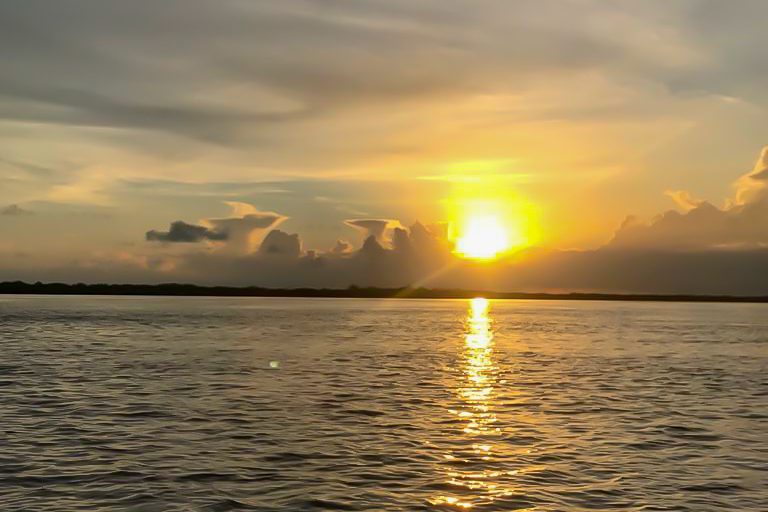
Sunset over Pate island | Photo: Joyce Mbataru


